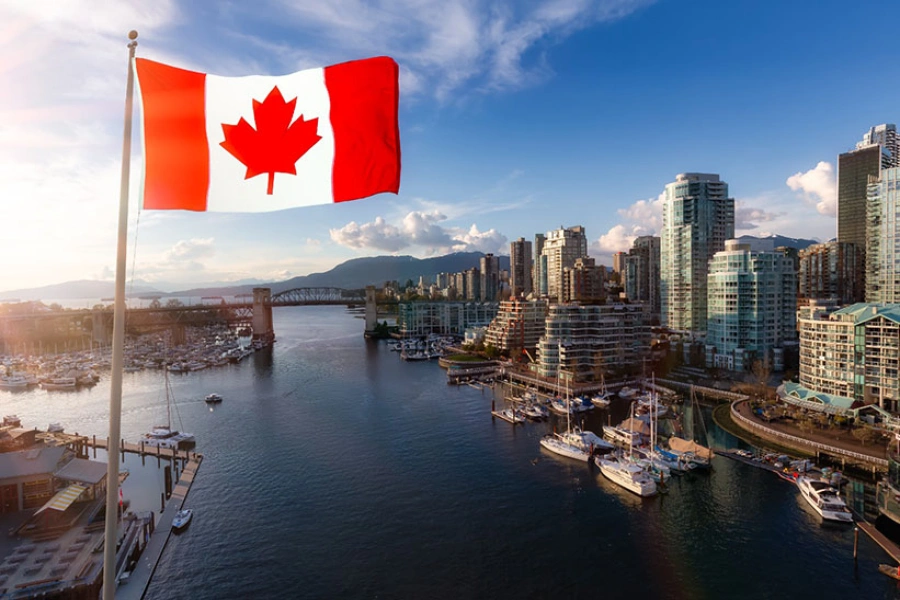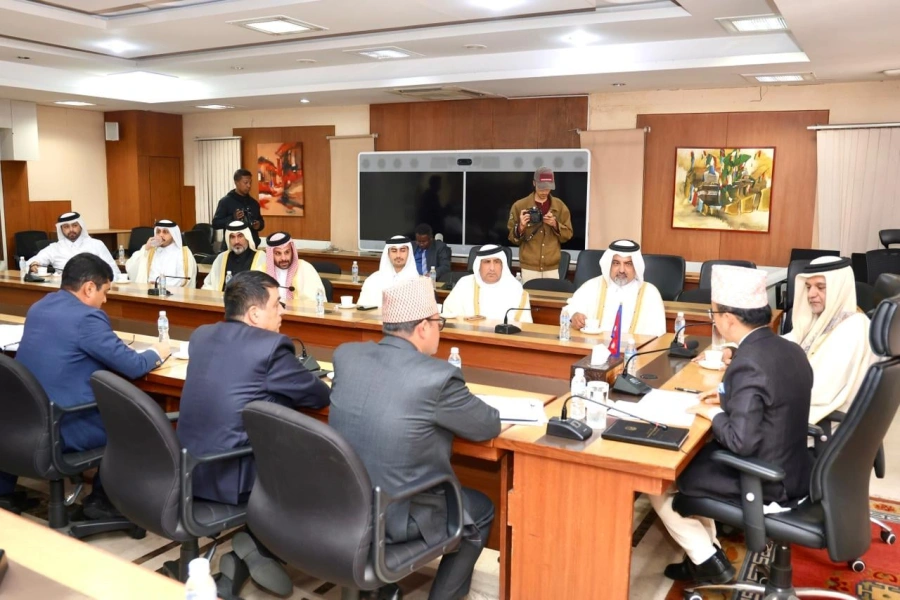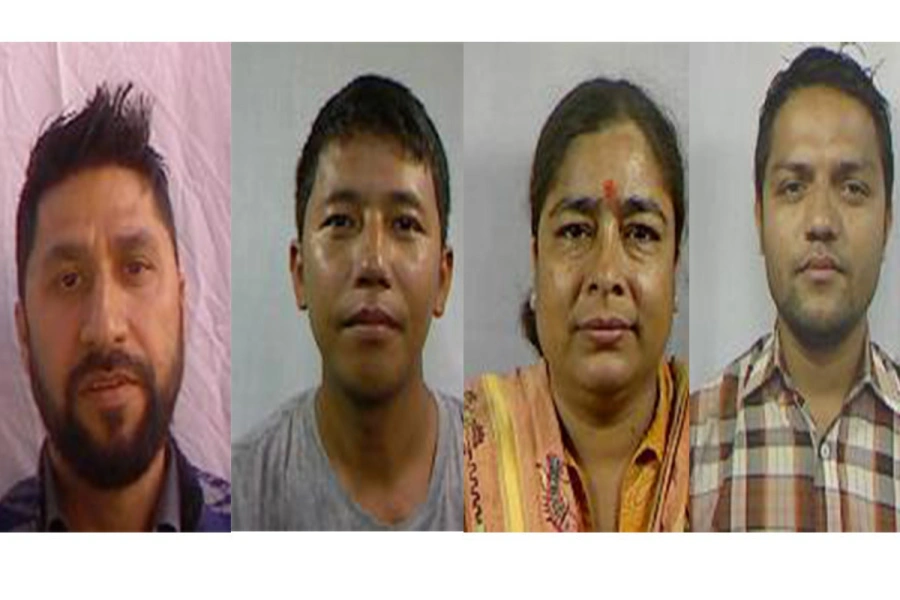The debate over 'India' versus 'Bharat' is not merely a matter of nomenclature; it symbolizes a crucial juncture in India's journey towards defining its identity.
Effectuating a name alteration at the national level may entail intricate administrative complexities, especially concerning the reconfiguration of passport and visa systems to harmonize with the new nomenclature.
India and Bharat, two names that have long stirred patriotic sentiments within the hearts of its citizens, have suddenly taken center stage in the country's political discourse. The current government has set in motion a significant shift by opting for 'Bharat' over 'India' in recent official communications and documents. This seemingly subtle change has ignited a firestorm of debate and speculation, with some seeing it as a bold assertion of national identity, while others view it as a divisive political maneuver. The use of 'Bharat' alongside 'India' harks back to the Constitution of India's first article, which begins with the phrase, 'India, that is Bharat...'—a nod to the dual nomenclature that has coexisted for decades. As India prepared to host the prestigious G20 summit, the placard reading 'Bharat' at Prime Minister Modi's seat during the summit's inauguration only intensified the scrutiny, leaving many wondering whether this move heralds the eventual phasing out of the country's English designation.
The Constitutional Assembly engaged in a debate over whether to officially name the newly independent nation 'Bharat' or 'India.' H. V. Kamath introduced an amendment proposing, "Bharat or, in the English language, India, shall be a Union of States," emphasizing the significance of this decision while Seth Govind Das, Shri Kallur Subba Rao and Kamalapati Tripathi argued for 'Bharat,' citing its ancient roots in Hindu spiritual texts like Rig Veda and Vayu Purana. Hargovind Pant expressed reluctance toward 'India,' given its etymological association with foreign roots. Ultimately, the Assembly adopted the formulation "India, that is, Bharat shall be a Union of States".
The adoption of 'India' as the official name can be attributed to the challenging circumstances during the period of drafting of the Constitution. In this crucial period, 'India' was not just a name, but an imported unifying identity, carefully chosen to foster solidarity and provide stability to the diverse social demographics. However, with the emergence of debate over distinctions between 'India' and 'Bharat,' it is imperative to examine this divide from multiple perspectives, encompassing the colonial context, economic disparities, and cultural variations.
Reading Between the Lines of Why Bharat Matters

Navigating different perspectives on Identity Dilemma
The colonial perspective on naming and identity reveals a complex interplay between power, culture, and space. Colonial powers often renamed places based on their origins or affiliations of explorers, reflecting Eurocentric perspectives. Indigenous toponyms were replaced with names resonating with colonizers' histories and identities. Indigenous lands with meaningful, spiritual place names were remapped and renamed, disregarding their cultural significance. 'India,' as denoted by the British colonial power, gave political identification to the nation state with clearly defined boundaries and centralized governance whereas ‘Bharat’ represents a discourse deeply rooted in indigenous social relations and shared moral orders. The shift from ‘Bharat’ to 'India' encapsulated the imposition of foreign identities, and terminologies on indigenous cultures."
In the rich tapestry of India's cultural history, the debate over whether to identify the nation as 'Bharat,' 'Hindustan,' or 'India' represents more than just a choice of nomenclature; it reflects the country's multifaceted cultural and religious landscape. From this perspective, different names for the country carry distinct cultural connotations. 'Bharat,' with its roots in Sanskrit and Hindu traditions, symbolizes a reverence for ancient Indian heritage. It encapsulates the idea of unity in diversity, celebrating the myriad cultures, languages, and religions that have thrived within the subcontinent. To many, 'Bharat' represents a call to embrace India's syncretic culture, where various belief systems and traditions have interwoven over centuries. 'Hindustan’, on the other hand, traces its origins to the Mughal Empire, emanating from a unique blend of cultural influences. It signifies a historical period when Persian and Indian cultures mingled, giving rise to a vibrant synthesis of art, architecture, and language. While some view 'Hindustan' through a predominantly Hindu lens, it also embodies the shared heritage of Hindus, Muslims, and other communities who contributed to expanding the horizons of the country’s cultural ethos.
Amidst myriad historical and cultural positions, India may seem like a more neutral term, given its relation with the colonial power. However, it carries its own cultural implications. It signifies an era of interaction with the outside world, including colonizers, which enriched India's cultural landscape with new ideas, languages, and customs. 'India' represents a nation that has absorbed and integrated foreign influences while retaining its core values.
In contemporary times, the divide manifests through multiple forms, one being that of economic inequalities. The economic divide in India is marked by the contrasting perceptions of 'India' and 'Bharat.' 'India' is linked with urban prosperity, while 'Bharat' represents rural and middle-class populations. This divide is deeply ingrained in public discourse, media, politics, and daily conversations, gaining significance as India's urban-rural gap widens.
Interrogating Feasibility: Bureaucratic and Diplomatic hassles
Effectuating a name alteration at the national level may entail intricate administrative complexities, especially concerning the reconfiguration of passport and visa systems to harmonize with the new nomenclature. When North Macedonia changed its name in 2019, the government had to issue new passports to reflect the change in its name. Further, it becomes necessary to modify geographic databases, Atlases, and maps to incorporate the nation's new name. In Belarus, cartographic professionals had to update their maps to reflect the sovereignty of the nation when it declared its independence from the Soviet Union in 1991.
Additionally, umpteen intricate challenges await on the global stage when a nation embarks on the endeavor to redefine its identity. These encompass legal, diplomatic, and pragmatic complexities, each presenting its own set of issues. For instance, the nation may find itself referenced by its former appellation in existing international treaties and accords, casting a veil of ambiguity over its obligations and sparking contentious debates.
The need for meticulous renegotiations often emerges, as exemplified by the case of the peaceful split between the Czech Republic and Slovakia in 1993. This transformation into independent nations demanded a comprehensive overhaul of numerous international agreements, spanning state-owned assets, trade, transit, currency, security, and more. Furthermore, the process may entail the extensive revamping of diplomatic infrastructure worldwide, involving costly and time-consuming updates to embassies and consulates to reflect the country's new identity. A case in point is the renaming and upgrading of diplomatic missions following Myanmar's transition from Burma in 1989.
Moreover, the nation's position within international organizations necessitates careful reconsideration, entailing intricate negotiations and modifications to voting rights and responsibilities. An illustrative case entails the adjustments undertaken by Eswatini (formerly Swaziland) within international organizations following its name change in 2018. Thus, as we delve into the specificities, it becomes evident that the transition from 'India' to 'Bharat' requires careful consideration and deliberation on its practical possibilities.
What we need to remember is that the debate over 'India' versus 'Bharat' is not merely a matter of nomenclature; it symbolizes a crucial juncture in India's journey towards defining its identity. As we navigate the intersecting narratives, it is pertinent to approach it with seriousness and balance, by carefully locating the need of transition from a colonial-imparted identity to an indigenous one. This debate should evolve as an inclusive, non-politicized, and non-polarized dialogue that reflects our sensitivity to the varied identities inhabiting the vast landscape.







































